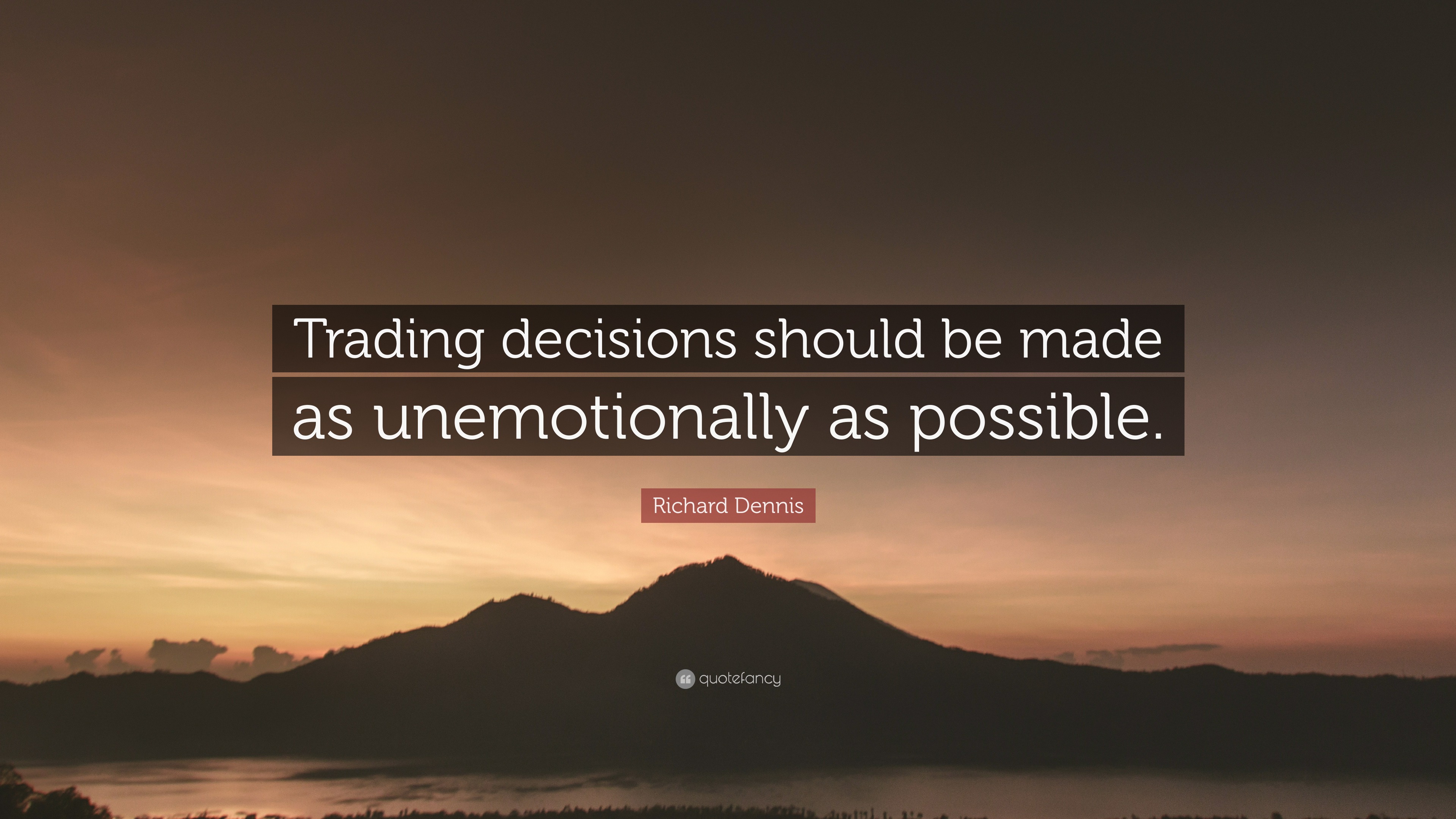
After all, option positions are usually held until something happens. For example, the stock moves or time passes, or volatility changes etc.
Any decision to exit (or hold or adjust) the position should be based on the current risk of the position. In other words: If you want to own the position as it is, then own it. If risk is too large, or profit potential is too small, or it you are not comfortable with the current trade, then do something: adjust, reduce size, or exit. If that play locks in a loss, so be it. That is not of primary importance.
Any position that you hold must have the potential to earn enough cash to justify the risk associated with holding. Estimating the probability of success is one factor to consider when making the hold/fold decision. As long as risk is not too high – and that's most of the time – traders who sell time premium (trading iron condors for example) collect their profits as time passes.
To be a profitable trader, you take your profits as they come, accept losses when that's the best decision, but don't concentrate on those factors. Instead, the key, and the most important item on which to focus is risk. That's the risk management skill that prevents large losses. That in turn translates into exiting risky positions, regardless of whether they are profitable or currently under water. Being willing to do whatever is necessary to get out of dangerous positions is the winner's mindset.
Those who do not agree argue that failing to pay attention to whether a position is profitable before exiting gives the trader little chance for success. The thought is : If you don't trade for profits, how can you ever know when to exit a position?
Here is a note from Christopher who takes the other side of my argument:
***
Mark,
The theory that profit and loss doesn't matter naturally assumes that you have a "perfect" assessment of the odds of a given trading position. In an imaginary world, whereby "current risk" can be measured to perfection, prior gains and losses never matter because we can always mathematically control our risk of ruin. In the real world nobody can perfectly gauge "current risk" and hence ignoring prior gains and losses can lead to ruin.
Stop losses should be employed when we have reason to believe that our measure of "current risk" is in error.
If you disagree, look up "Long Term Capital Management" for further evidence.
Christopher Cole from Artemis Capital
***
Hello Christopher,
In discussing what role current profitability should play in deciding when to exit a trade, I was offering my opinion on how traders should manage position risk. The idea is that the inexperienced trader would benefit by following this advice because it overcomes a common blind spot. I was also hoping that the experienced trader may discover something he/she had previously overlooked.
My point is simply this: Do you want to own any given position, right now, at its current price and under current market conditions? Nothing else matters. If you have no desire to own it, I strongly recommend closing. If that results in a loss, then that's the way it has to be. That's far better than continuing to hold a risky trade – planning to exit as soon as the trade turns profitable.

I noticed a very timely blog from Felix Salmon regarding the US Government's decision to sell some of its
shares of General Motors at the IPO price:
"The next big tranche of bailout repayment funds, of course, is going to arrive tomorrow, with the upsized GM IPO. The size of the stake that Treasury’s selling has been growing impressively, and at this point it looks as though taxpayers are going to end up owning just 33% of GM, down from 61% right now.
The more shares that the government sells in the low $30s, of course, the harder it’s going to be for Treasury to realize an average price of $44 per share for its stake by the time its last share of stock has been sold. That’s the point at which the government breaks even on the deal.
But I’m glad that Treasury isn’t letting such considerations stop it—holding on to stock just because it’s trading below some arbitrary 0% return figure is simply speculating in the stock market, and it’s not Treasury’s job to be a stock-market speculator."
You don't have to agree, but this discussion is hardly comparable to LCTM. I'm not talking about adding to the trade in gigantic size. They were absolutely certain that they were correct in their assessment. They grew the position size. They refused to believe that what they were seeing was real. And they had no real conception of risk because their risk-evaluation model was flawed. In their (brilliant) minds, they ignored one very basic principle for traders: "Markets can remain irrational longer than you can remain solvent." [John Maynard Keynes]
Every trade eventually requires a hold/exit decision. When using options, an additional choice becomes available: hold through expiration. I don't believe it's a good idea to hold a loser, just because it is a loser. There's a time to own a position (potential reward justifies the risk) and there is a time to get out (risk too high when considering potential gain). I am certain that you recognize that not every trade can be a winner. Thus, holding losers with the hope of making every trade profitable is not viable. First, it will never happen. Second, traders would hold any poor (risky) position simply because he/she refuses to take a loss.
I believe that a good trade decision does not have to take into consideration whether the current trade is showing a profit or loss. I'm not saying that you must ignore that factor (I ignore it), but it should not be the primary factor in your exit decision.
Nor does the decision have to depend on an accurate assessment of future prospects. However, current risk is easy to measure when a trader adopts limited risk and limited reward strategies. I always know the best and worst possible scenarios and trade to avoid the worst case. To me, decisions cannot get any easier than that. How else can a trader manage risk? I either want this position in my portfolio or I don't. I may be unable to make a perfect assessment of the probability of winning, but I know how much can be won and lost.
Why hold a trade when you have a negative opinion of future prospects? Just so you don't have to lock in a loss? That makes no sense to me.
Here's an example of my bottom line: You can exit a specific trade by paying $100. How can it matter whether you sold this position and collected $200 (and would have a profit) or $50 (and would have a loss)? Do you want to own it or not. The price is $100 right now. Nothing else matters..
Christopher, I believe this is a matter of perspective. And apparently we have different perspectives. There's nothing wrong with that.
Thanks for writing.
Mark Wolfinger has been in the options business since 1977, when he began his career as a floor trader at the Chicago Board Options Exchange (CBOE). Since leaving the Exchange, Mark has been giving trading seminars as well as providing individual mentoring via telephone, email and his premium Options For Rookies blog. Mark has published four books about options. His Options For Rookies book is a classic primer and a must read for every options trader. Mark holds a BS from Brooklyn College and a PhD in chemistry from Northwestern University.




There are no comments to display.
Join the conversation
You can post now and register later. If you have an account, sign in now to post with your account.
Note: Your post will require moderator approval before it will be visible.